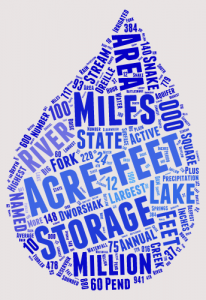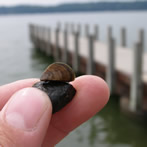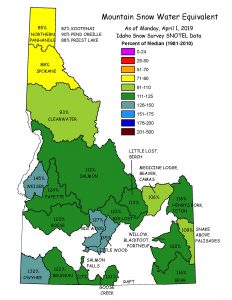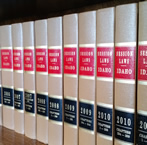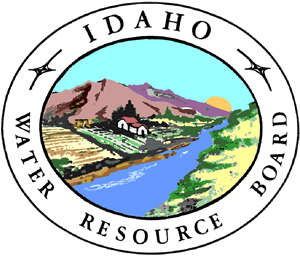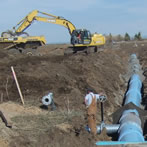An adjudication is a court proceeding that inventories and catalogs water rights existing at a snapshot in time. The court issues a decree confirming the elements of each water right. In this case, the Idaho Supreme Court designated an Idaho district court to conduct the adjudication. IDWR aids and advises the court.
Idaho law requires the IDWR Director to serve notice by mail on each person or entity owning real property within the boundaries of the water basin being adjudicated. If you own multiple properties within the boundary, you might receive more than one Commencement Notice.
Phase 3: Clark Fork-Pend Oreille River Basin Adjudication (CFPRBA) Commencement Notices
- Bonner & Boundary County property owners within Basin 97 – Mailing Group 1
- Bonner & Boundary County property owners within Basin 96 – Mailing Group 2 (pending)
- Bonner & Boundary County property owners within Basin 96 – Mailing Group 3 (pending)
- Bonner & Boundary County property owners within Basin 96 – Mailing Group 4 (pending)
- Bonner & Boundary County property owners within Basin 96 – Mailing Group 5 (pending)
In Idaho, establishing a water right requires that water is diverted and put to beneficial use. If there is no history of diversion and use, then a water right has not been established.
Prior to March 25, 1963, for ground water, and May 20, 1971, for surface water, a water right could be established by simply diverting water and putting it to beneficial use. The permit system for establishing a water right became mandatory for uses developed from ground water after March 25, 1963 (except for domestic purposes as defined by Section 42-111, Idaho Code), and for uses developed from surface water after May 20, 1971 (except for watering stock directly from streams).
No. An adjudication is a court action for the determination of existing water rights. When you want to begin using water, contact the Idaho Department of Water Resources to file an application for permit.
Water users with small domestic and/or stockwater rights, as defined in Idaho Code §§ 42-111 & 42-1401A, may defer (postpone) filing a claim until a later time in the adjudication proceeding. Although a deadline for filing claims for these “deferrable” domestic and stockwater rights has not been set, the opportunity to defer filing is not indefinite. At some future time, the court will establish a filing deadline for small domestic and stockwater rights. IDWR recommends filing a claim for a small domestic or stockwater right now and not deferring.
There is a one-time fee associated with filing an adjudication claim. However, the amount of those fees should not result in the need for water providers to increase bills for their customers.
There is a one-time fee associated with filing an adjudication claim(s). However, the amount of those fees should not result in the need for water providers to increase bills for their customers.
Water resources in the Clark Fork-Pend Oreille River Basin, Palouse River Basin, and Coeur d’Alene-Spokane River Basin, including significant underlying aquifers, are shared with the State of Washington. Both Idaho and Washington desire to reach agreement on how the waters of these resources will be used. To best protect the interests of Idaho water users, Idaho’s water managers must know the extent of the valid water rights in Idaho. An adjudication is the only way to determine this.
In addition, population growth in northern Idaho is adding pressure on water resources. According to the Idaho Constitution and Idaho law, in a time of water shortage, Idaho water right holders with older water rights have priority over newer water rights. This is sometimes called the “first in time is first in right” principal. For each water right, the date of first water use is called the priority date. An adjudication is the only way to determine the relative priorities of all the water rights diverted from a water source.
No. An adjudication determines the priority and other elements of existing water rights. It does not address the day-to-day administration of water rights. This is not to say IDWR would never require a well to be metered. For example, if a dispute arose between water users over the impact of ground water pumping on the supply of water available to water right owners, IDWR may require metering of the wells involved in the dispute. However, IDWR does not have the directive, need, or resources to require meters on all private domestic wells.
A combination of water right claim filing fees and Idaho General Tax Fund appropriations will pay for the adjudication. Current estimates place the ratio at approximately 1/10 fees and 9/10 general fund dollars.
Yes, most claimants complete the Notice of Claim forms without requiring additional assistance. The online, claim-filing procedure steps you through the process. To get started, review the Before You Start information on the Online Claims Taking page.
If an adjudication claim is required for your water use, failure to file that claim before the final decree will result in a determination that the water right no longer exists. However, as stated on page 2 of the Commencement Notice, water users with small domestic and/or stockwater rights, as defined in Idaho Code §§ 42-111 & 42-1401A, may defer (postpone) filing a claim until a later time in the adjudication proceeding. Although a deadline for filing claims for these “deferrable” domestic and stockwater rights has not been set, the opportunity to defer filing is not indefinite. At some future time, the court will establish a filing deadline for small domestic and stockwater rights. IDWR recommends filing a claim for a small domestic or stockwater right now and not deferring.
If you are currently diverting water and putting it to beneficial use you may already have a valid water right. The Adjudication process provides a method to verify and record water rights developed before statutes were enacted requiring a water user to file an application for permit to establish a new water right. An application for permit was required to establish a new water right after March 25, 1963, for ground water and May 20, 1971, for surface water. Before these dates individuals could establish a water right by simply diverting water and applying it to beneficial use.
After 1963, a beneficial use right to ground water may only be established for small domestic and stockwater purposes as described in Idaho Code § 42-111. After 1971, a beneficial use right to surface water can only be established for water used solely for instream watering of livestock.
If you started using ground water after March 25, 1963, without filing an Application for Permit, for anything other than a small domestic or stock water use, or you started using surface water after May 20, 1971, without filing an Application for Permit, for anything other than letting stock drink directly from a stream, you need to file an Application for Permit rather than an adjudication claim.
The Idaho legislature recognized that effective management of the waters of the state of Idaho requires that, “…a comprehensive determination of the nature, extent and priority of the rights of users of surface and ground water be determined.”
The purpose of the general adjudication of water rights is to make a complete and accurate record of all existing water rights. A water right adjudication catalogs and confirms, through the court, all water rights and to which property those water rights belong, binding all property owners and parties to the court decree of those water rights. A comprehensive determination of water rights is needed to protect existing water rights, effectively manage the resource during times of water shortage or dispute, as well as for planning for the future.
It depends.
If Proof of Beneficial Use was submitted to IDWR in connection with your licensed water right on or before the adjudication commencement (June 15, 2021) and your licensed water use is not deferrable, then filing a claim for an existing water license (or prior decree, if issued before the commencement) is required.
If you submitted Proof of Beneficial Use to IDWR on your licensed water right after June 15, 2021, then you do not need to file a claim for that licensed water right.
If changes to parts of a licensed or prior-decreed water right have occurred, the adjudication will result in an updated water right description. IDWR makes a thorough examination and notifies any current owner about old recorded water rights. In the rare cases when a property owner ceased using and exercising a prior water right, the adjudication will clear these once-existing water rights from IDWR’s inventory. Any unclaimed water right that is not deferrable will cease to exist once the adjudication is complete.
The Idaho Legislature would need to pass new legislation in order to impose a tax on private wells.
A Notice of Claim to a Water Right is filed with IDWR in water rights adjudications. An adjudication is a court action for the determination of existing water rights, which results in a decree that confirms and defines each water right. For the Clark Fork Pend Oreille (CFPRBA) and Bear River Basin (BRBA), all uses established on or before June 15, 2021, are considered existing.
New water rights are established through the IDWR permitting process using an Application for Permit. For purposes of the Clark Fork Pend Oreille and the Bear River Basin, water uses first occurring after June 15, 2021, are considered new water rights.


